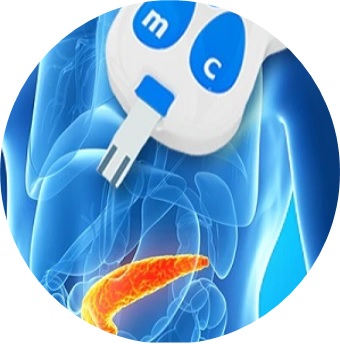Access to Diabetes Care is the theme for World Diabetes Day 2021-23
The International Diabetes Federation (IDF) and the World Health Organization (WHO) have designated November 14, 1991, as World Diabetes Day, given the growing incidence of diabetes in human societies. This day, which is one of the official occasions in the UN calendar, is celebrated every year with more participation and support from governments, governmental and non-governmental organizations and institutions around the world.
World Diabetes Day campaign has three main goals:
- Provide the necessary space to pay attention to the needs of the diabetic community
- Emphasis on the need to implement coordinated programs to control the risks of diabetes for communities
- Drawing the world’s attention to the problem of diabetes and its management strategies
Diabetes occurs when a person is unable to produce enough insulin (type 1 diabetes) or to use insulin produced in the pancreas (type 2 diabetes), which can lead to high blood sugar levels. Predisposing factors in the development of diabetes include overweight and physical inactivity or having a family history of the disease. If left untreated, diabetes can lead to serious complications such as kidney failure, stroke, blindness, and in some cases, problems with the tissues of the lower limbs, leading to diabetic ulcers and eventual amputation. In addition, for millions of low-income households, the cost of accessing lifelong care for diabetes and other non-communicable diseases can put economic pressure on families.
World Diabetes Day comes again for the second year during the global epidemic; CoVID-19 that has now affected the lives of more than one million people. Observations and research also show that people with diabetes are at higher risk for COVID-19.
In 2020, World Diabetes Day theme was “Nurses and Diabetes” to highlight the vital role of nurses in supporting people with diabetes. This year, the them of World Diabetes Day 2021-2023 is “Access to Diabetes Care” to address the barriers to accessing drugs, technology, support and care, and millions of people with diabetes worldwide. Problems encountered, highlight.
Research by the International Diabetes Federation (IDF) has shown that many families are unable to recognize the early signs of diabetes in their children. Although most of the people in this study had at least one person with diabetes in their family, it was found that 4 out of 5 parents (father, mother, or both) did not know the exact warning signs of diabetes; And one in three parents did not recognize these symptoms at all!
Diagnosis-One out of two people are unaware of their diabetes: Early diagnosis and treatment are key to managing diabetes and preventing complications. -Failure to diagnose type 1 diabetes early can have serious risks. Recognize the symptoms of diabetes to protect yourself and your family. | Prevention-Type 2 diabetes can be prevented in many cases by following a healthy lifestyle. Diabetes prevention begins in the family. -If you have a person with diabetes in the family, know the risk factors for diabetes, its symptoms and management strategies. -Families need to establish a healthy lifestyle to reduce the risk of developing diabetes in all members. | Management-Diabetes management requires daily care, control and treatment, a healthy lifestyle and ongoing education. Family support for a diabetic is the key to success! -Ongoing education and support should be available to all families and individuals with diabetes to provide them with the motivation and skills needed to manage diabetes. – Primary care and medication for diabetes should be available to all families. |
Diabetes screening and control
You can click here for more information.



